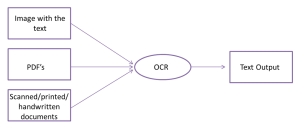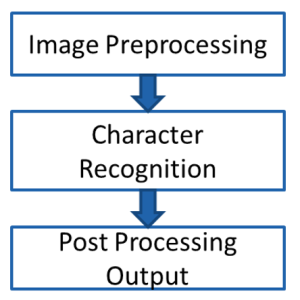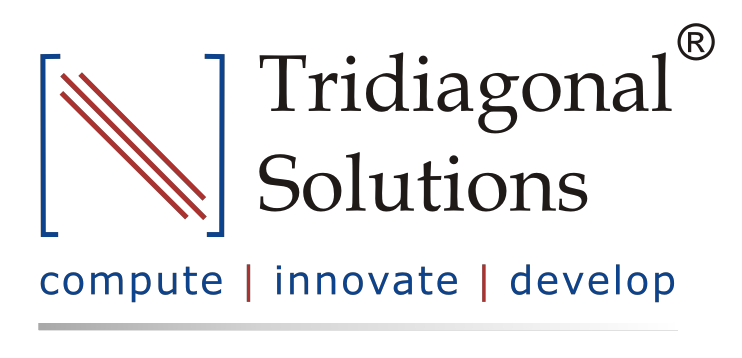Optical Character Recognition – OCR in Manufacturing Industry

Introduction:
Despite digitization, most industries still rely on traditional methods for recording the data, such as manually filling out logs, excels, etc. But as the world moves into the digital age, industries are also making their way to storing data digitally.
To store a large amount of data, what steps should one take?
It would be helpful if we typed each word individually, wouldn’t it? It will be extremely tedious, time-consuming, and stressful to type every word. OCR technique comes in handy here. OCR stands for optical character recognition, part of computer vision technology. OCR allows you to convert different kinds of documents like images, pdf and scanned photos into machine-readable and editable forms.
What is OCR:

Optical Character Recognition (OCR) is a technique for extracting data from scanned documents. It uses either rule-based or AI-based approaches for recognizing text. The rule-based approach involved inspecting the area based on coordinates and hard-coded rules in the form of if-else statements. In contrast, AI-based OCR solutions develop rules on their own and continually improve them as they go along.
Rule-based approach are useful when extracting only a certain amount of information from a page and store it in tabular form for further analysis. The AI-based approach is suitable if all the information from the scanned page needs to extracted as it is without any modification.
How OCR Works:

For the OCR technique to work effectively, we must process the image before feeding it to the engine. As part of preprocessing, we first convert the image into a grayscale and perform various morphological operations such as dilation, erosion, opening, and closing. This operation depends upon the kind of information you need to extract. For example, if you wish to extract simple text information contained in the image, simple operations like dilation and erosion work. However, information extraction from the table required intense morphological operations. Once information extracted, we performed a post-processing operation to get the data into the desired form.
Scope of OCR in the Manufacturing industries:
A batch ID, lot code, storage condition, and expiration date play a vital role in pharmaceutical data analysis. Each entry from the pdf report must be transcribed into an Excel sheet. It takes a lot of time and effort to complete this task. This effort could be saved by utilizing OCR technology. You can store the information in an Excel sheet after it is extracted from the pdf files.
It is common in the cement or chemical industry to store data in log sheets. OCR can extract this data and can output it as text. We further process that text output into a tabular form so the analyst team can analyze the process and act on the insight gathered from the data.
Many industries are using this technique to start their digitization journey, if you want to be part of this, connect with us at analytics@tridiagonal.com
Written By:
Nikhil Bokade
Data Scientist
Manufacturing Excellence Digital Transformation Group
- Published in Blog


